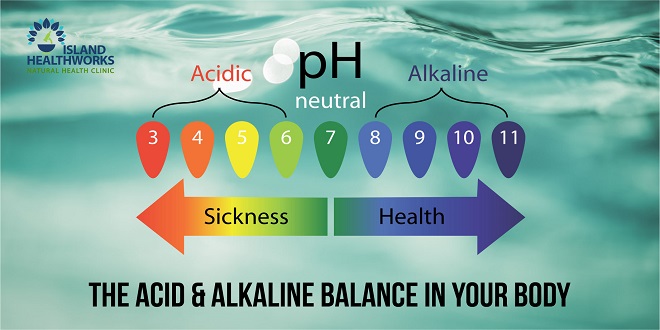Social Media and Mental Health: Strategies for Healthy Engagement

Discover the impact of social media on mental health, including its effects on anxiety, depression, and self-esteem. Learn strategies for healthy social media use and promoting mental health, especially for young people.
Social Media and Mental Health: A Complex Relationship
The influence of social media on mental health has become a major topic of concern in today’s digital age. As more people across various age groups engage with platforms like Instagram, Facebook, and TikTok, mental health issues such as anxiety, depression, and low self-esteem have become increasingly prevalent, particularly among young people. While social media platforms offer opportunities for connection and emotional support, the negative aspects of social media, including cyberbullying, comparison, and misinformation, cannot be ignored.
According to Pew Research Center, the rise in social media usage, particularly among adolescents, has contributed to a range of youth mental health concerns, including eating disorders, social anxiety, and poor sleep quality.
Additionally, excessive engagement with these platforms can trigger anxiety and affect the brain’s reward center, creating addiction-like behaviors. It is crucial to understand both the positive and negative effects of social media to cultivate healthier social media habits.
The Negative Impact of Social Media Platforms on Mental Health Issues
Frequent social media use has been linked to poor mental health outcomes, including depressive symptoms and suicide-related outcomes. Social media apps often create an environment where people compare themselves to others, leading to a distorted body image, online abuse and low self-esteem. Constantly checking social media and being exposed to negative posts can leave lasting emotional scars, especially for those in vulnerable age groups such as adolescents and young adults.

Research published in the International Journal of Medical Internet Research and Clinical Psychological Science has shown that excessive social media use can trigger negative psychological well-being outcomes, including heightened impulse control issues, feelings of social anxiety, and a growing sense of isolation despite increased online engagement. For some, social media use can feel like a slot machine, with every notification offering the potential for emotional highs or lows.
Youth Mental Health and Social Media Addiction
One of the most vulnerable groups affected by social media addiction is youth. Adolescent health is significantly impacted by social media habits, as teenagers are highly sensitive to social feedback and online validation. According to the Surgeon General’s Advisory, excessive media screen time can impair emotional regulation and cause increased risk of self-harm or feelings of inadequacy.
Parents and educators must raise awareness about social media literacy and the importance of healthy boundaries for adolescents. Health and Human Services recommend setting ground rules for a child’s social media use, such as limiting time spent on platforms and encouraging offline friendships. Research from Public Health organizations underscores that teens who spend more time online, especially on social networking sites, are more prone to mental health problems such as depression, anxiety, and poor sleep quality.
Positive Aspects and Strategies for Healthy Social Media Use
Despite these challenges, social media does have potential benefits when used mindfully. Social platforms can offer a sense of belonging and emotional support, particularly for individuals struggling with mental health conditions. Social media can foster supportive communities, especially when users seek out content related to self-esteem building, positive aspects of human behavior, and emotional well-being.

Strategies for Healthy Social Media Engagement
- Set Time Limits: Establish clear boundaries for the amount of time you access social media apps. Monitoring social media habits can help reduce feelings of overwhelm and encourage a more balanced lifestyle.
- Follow Positive Accounts: Surrounding yourself with uplifting and educational content can help counter the effects of negative social media posts that trigger anxiety or depressive symptoms.
- Practice Social Media Literacy: Understand the curated nature of online content. Being aware of how social media platforms encourage comparison can help alleviate feelings of inferiority and low self-esteem.
- Promote Emotional Support and Connection: Engage with online communities that foster genuine, supportive interactions rather than focusing on superficial engagement. Platforms can be a place to find helpful resources, connect with mental health professionals, or build a sense of community.
- Encourage Offline Friendships and Activities: Fostering relationships with offline friends and engaging in activities outside of social media can improve overall psychological well-being and reduce the harmful effects of comparison.
Future Research and Raising Awareness
While studies, such as those published in the Journal of Clinical Psychological Science and Systematic Reviews on social media addiction, continue to explore the negative aspects of social media, ongoing future research must focus on understanding how to mitigate its harmful effects. Programs designed to promote social media literacy for young adults and adolescents, in addition to providing emotional support, will be essential for improving mental health outcomes in the digital age.
Governments and organizations, including the Health and Human Services and the Surgeon General’s Advisory, emphasize the importance of continuing research into the correlation between social media usage and mental health problems. Efforts to create healthier digital environments and educate young people on safe online practices will be vital to improving overall well-being.
Mental Health and Social Media Use
While social media has the power to influence both positively and negatively, fostering healthy social media use is critical for protecting mental health. By being mindful of the time spent on these platforms, engaging with supportive communities, and prioritizing real-life connections, individuals can navigate the challenges of social media while promoting a healthier digital presence.





